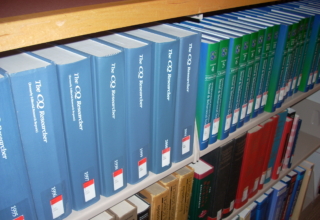
For coaches who want to be more discerning and informed consumers of coaching research I offer four areas for consideration.
1. Who. Who is the author? Is the author also the provider of the service or an outside reviewer? Does she/he have a vested interest in showing a positive outcome? Does the author have some experience and/or credentials that would support credibility?
2. What. What is the focus of this study? Are there clearly defined questions or directions for exploration or is this a fishing expedition? What is the purpose of the study? Is it defined in specific terms (e.g. to explore the impact of cognitive coaching on client’s workplace relationships) or broad terms (e.g. to prove the effectiveness of my patented method)? Setting out to understand a phenomenon or to document the impact of a coaching intervention is less prone to bias than setting out to prove that a particular method works.
3. How. How are the data collected and managed? Are there several sources of data (preferred) or just one (the author)? How does the author address data which are anomalous? How does the author address the issue of bias? How does the author ensure that data collection is inclusive and appropriate to the questions being explored?
4. Connections. Are the author’s conclusions supported by evidence? Is there a clear logic or reasoning? Does it affirm or challenge your experience? How can this be applied in your own work?
I often define research as a disciplined, well-informed curiosity. By disciplined, I mean that there is some system for formulating a question (or questions) to explore, for collecting the documentation/data, and for going about meaning-making. By “well-informed” I mean that the practitioner/researcher is conversant with the literature of coaching; that the focus and conclusions of a study are linked to both data from experience and from books and articles written by others. As a baseline, discerning coaches should be able to distinguish facts, inferences, judgments and assumptions in their documentation and engage in meaning-making with that clarity.
Download Article 1K Club













